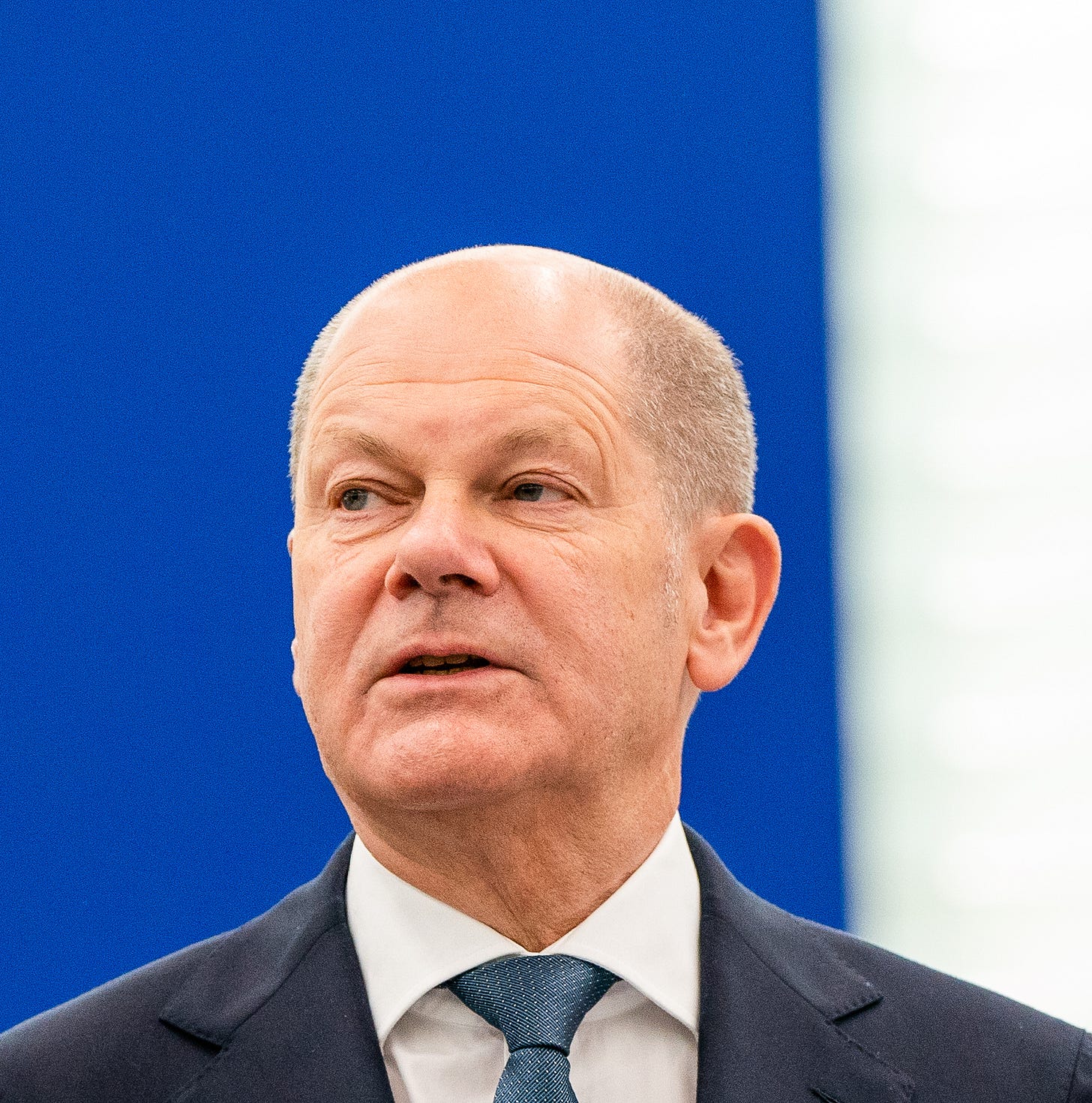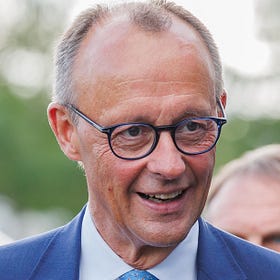Fast elections is the only way forward.
After the collapse of the German Government on Wednesday Evening, Chancellor Scholz still wants to wait more than two months to cast the Vote of Confidence.

Wednesday truly was a day of political earthquakes. Donald Trump became President Elect of the USA, in Saxony exploratory talks between the CDU, SPD and the Alliance Sahra Wagenknecht (BSW) failed and the day ended with the news of Chancellor Olaf Scholz (SPD) releasing Minister of Financial Affairs Christian Lindner (FDP) from his government - making the government collapse. This marked the end of a government which was failing for a long time. Especially since the release of a paper from Lindner which consisted of demands that he knew the Greens and SPD will never accept (e.g. abolishing national climate goals) it was only a matter of when, not if the Government will collapse.
It happened in a very dramatic way with Olaf Scholz going off on Lindner in his speech on Wednesday evening. Lindner broke Scholz’ trust “too many times” and eventually there was not any “basis of trust” left. The immediate trigger to release Lindner were the negotiations for the government budget 2025. There was still a gap which had to be filled and while Lindner wanted to cut social benefits even more, Scholz demanded the declaration of a state of emergency which would then allow the government to take on more debt. The state of emergency would be reasoned with the ongoing war in Ukraine and the facts that we have taken more than a million refugees. Also, does the election of Donald Trump lead to an uncertainness regarding the support of the Ukraine. This could lead to us having to spend even more than we are already doing. Nevertheless this extra debt would allow way more play room for the government in designing the budget for next year. Obviously Lindner opposed this idea as the debt brake is holy to him. He also feared that the reasoning behind the declaration of a state of emergency would not be sufficient enough and therefore be declared as unconstitutional. Later he declared that he would have violated his oath of office.
What now?
Scholz plans to bring many of the plans which his government had into parliament eventhough he doesn’t have a majority anymore. He wants to talk with the opposition to get the majority - mainly with Friedrich Merz of the CDU. After the Christmas Break he then wants to cast the Vote of Confidence which would lead to new elections in March. Merz and the CDU are refusing any collaboration with the - now only Red-Green - government if Scholz does not cast the Vote of Confidence as soon as possible.
I also believe that Scholz should not wait until January. Considering future coalition talks after the election it would mean that Germany wouldn’t have a majority government for at least six months. Germany can’t afford even more instability and needs a new stable majority as fast as possible. Even if the CDU would collaborate with SPD & Greens until Christmas it would still be very, very far away from being a stable majority. This government had been instable for a long time which led to many insecurities in our population and economy. Desperatly clinging to a minority government - which even with a majority in parliament was very unpopular - for two more months will damage the trust into politics even more. Also do 65% of the German population think that new elections should be held as fast as possible.
Now keep in mind that Merz is refusing any collaboration if Scholz is not casting the Vote of Confidence and you get a situation in which it is simply damaging our country and the public trust in democracy if Olaf Scholz tries to keep this alive until January 15th. Next Wednesday on November 13th the Chancellor is giving a government statement in parliament. There he should ask the Bundestag for confidence. Following that President Frank-Walter Steinmeier has 21 days to dissolve the parliament. In that period it could still be possible for CDU, SPD and Greens to maybe discuss the government budget or other important things. And even though I don’t believe that the government and the CDU will be able to agree on things, it is the only way forward. We will have a period of political instability without majorities inside our parliament - it’s just a question of how long. Either Scholz casts the Vote of Confidence next week and we get a small time period in which government and opposition maybe collaborate - or Scholz waits until Januar 15th and we will definetly have a period of more than two months in which we don’t even have the chance of collaboration between the government and CDU. The first option is inevatible and the only fair option. The chapter of the Ampel (traffic light) coalition is over and out. We need a new government as fast as possible with stable majorities.
What are the options for a next government?
For the next election we have four official chancellor candidates - Friedrich Merz (CDU), Alice Weidel (AfD), Olaf Scholz (SPD) and Robert Habeck (Greens). Alice Weidel from the far right is the furthest away from actually reaching that office as no party will form a coalition with her. But also for the Greens it is very optimistic to nominate a chancellor nominee as they stand at 12% in national polls on 4th place. The most realistic scenario is that the next Chancellor of Germany will be called Friedrich Merz as the CDU are leading the polls by over 15%. I already did a whole blog article about him - you can read more about him here:
Friedrich Merz - Future Chancellor of Germany?
His main opponents, Hendrik Wüst and Markus Söder, have made the way free and will support Friedrich Merz as the CDUs chancellor nominee. Is Friedrich Merz the suitable fit?
They would then have to form a coalition with either the Greens or SPD. The latter seems way more likely as especially the CDU’s sister party CSU from Bavaria and its leader Markus Söder are already ruling out a coalition with the Greens. A new Grand Coalition (CDU/CSU & SPD) therefore is the most likely option. The expectation has to be that the new Grand Coalition should not step into the shoesteps of the last Grand Coalitions under Merkel. Things need to change and our country, infrastructure and economy need to be modernised. Only time will tell what our future government will look like and still a lot can happen in the time up to the election. It will also be interesting to see how the future government will cope with constructing government budgets under the debt brake. I certainly do not believe that future negotiations will be easy as the problem - that there is not enough money - will not disappear. The negotiations - and the future government in general - should most definitely not run as public and destructive as the coalition between SPD, Greens and FDP did. We just witnessed what that will eventually lead to.




